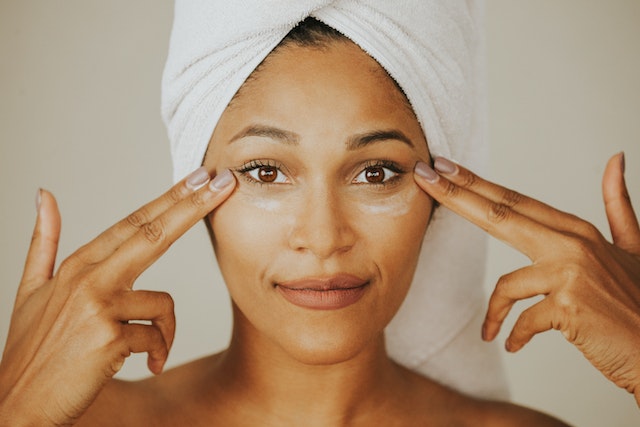Selecting the best cream for your skincare needs can be daunting, given the wide array of options available. Whether you’re looking for a facial moisturizer, an anti-aging cream, or a specialized treatment, making a knowledgeable choice is paramount for achieving healthy and radiant skin.

We will explore the factors to contemplate when choosing the best cream for your skincare requirements. By comprehending these criteria, you can confidently navigate the beauty aisle and tailor your skincare routine to your unique needs.
Factors to contemplate when choosing the best cream
1. Know Your Skin Type:
Understanding your skin type is the first step in selecting the best cream for your skincare regimen. Skin types can generally be categorized as normal, dry, oily, combination, or sensitive. Each type has its unique characteristics and requires specific types of creams. For example, if you have dry skin, you’ll want a cream that provides deep hydration and locks in moisture. Conversely, those with oily skin may prefer a lightweight, oil-free cream to prevent clogged pores and excess shine. Identifying your skin type helps narrow your options and ensures that the cream you choose addresses your needs.
2. Identify Your Skin Concerns:
Beyond your skin type, it’s essential to consider any specific skin concerns or goals you may have. These concerns can range from anti-aging and wrinkle reduction to acne control, pigmentation correction, or soothing sensitive skin. Identifying your primary skincare concerns will help you select a cream with the right ingredients and formulations to target those issues effectively. Look for creams that contain key ingredients suited to your concerns, such as retinol for anti-aging, salicylic acid for acne-prone skin, hyaluronic acid for hydration, or antioxidants for overall skin health.
3. Read the Ingredient List:
Examining the ingredient list is a paramount step in evaluating the suitability of a cream for your skin. Ingredients are typically listed in descending order of concentration, with those at the top having higher concentrations in the product. Glimpse for key ingredients that link with your skincare goals and concerns. For instance, glycerin, hyaluronic acid, and ceramides are excellent moisturizing agents if you’re seeking hydration. For anti-aging benefits, ingredients like peptides, retinoids, and antioxidants can be beneficial. Be cautious of products with potential irritants, allergens, or unnecessary additives, particularly if you have sensitive skin.
4. Consider Texture and Consistency:
The texture and consistency of a cream play a paramount role in your skincare experience. Creams come in various forms, including thick creams, lightweight lotions, and fast-absorbing gels. The texture you choose should link with your skin type and personal preferences. Dry skin may benefit from richer, more emollient creams that provide deep hydration, while oily skin often responds well to lightweight, oil-free lotions. Creams with a gel-like consistency are suitable for those who prefer a non-greasy feel, while serums are highly concentrated and ideal for targeting specific concerns. Select a texture that you find pleasant to apply and wear, as this will encourage consistent use.
5. Fragrance-Free Options for Sensitive Skin:
Fragrances are commonly added to skincare products to enhance the sensory experience. Nevertheless, fragrances can be problematic, particularly for those with sensitive or easily irritated skin. Fragrance-free creams are a safer choice, as they are formulated without added fragrances that can cause irritation or allergic reactions. While fragrance may enhance the product’s appeal, it does not contribute to its efficacy. Unscented products are frequently better suited for individuals with fragrance allergies or sensitivities, ensuring a gentler and less irritating skincare routine.
6. Consider Seasonal Variations:
Your skincare needs can change with the seasons. During the winter months, when the air is dry and humidity is low, you may require a richer, more hydrating cream to combat dryness and prevent moisture loss. In contrast, summer may call for a lighter, oil-free cream to prevent clogged pores and excessive shine in hot and humid conditions. Regard adjusting your cream seasonally to accommodate these changes and maintain balanced and comfortable skin throughout the year.
7. Perform a Patch Test:
Before applying a new cream to your entire face, it’s advisable to conduct a patch test. Apply a small amount of the product to a discreet area of your skin, such as the inside of your wrist or behind your ear. Monitor the area for any adverse reactions, such as redness, itching, or irritation, over 24-48 hours. If no reaction occurs, it’s generally safe to use the product on your face. Patch testing helps stem potential skin issues and allows you to identify any allergies or sensitivities to the cream.
Choosing the best cream for your skincare needs is a pivotal step in maintaining healthy and radiant skin. By understanding your skin type, identifying your concerns, scrutinizing ingredient lists, and contemplating factors like texture, fragrance, and seasonality, you can make an knowledgeable decision. Keep in mind that skincare is a highly individualized journey, and what works for one person may not work for another. Take the time to experiment and find a cream such as ones from go to Honest & Pure that suits your skin’s unique needs, and don’t hesitate to pursue professional advice if you have distinctive concerns or conditions. Ultimately, a well-selected cream can contribute to a more youthful, hydrated, and glowing complexion.